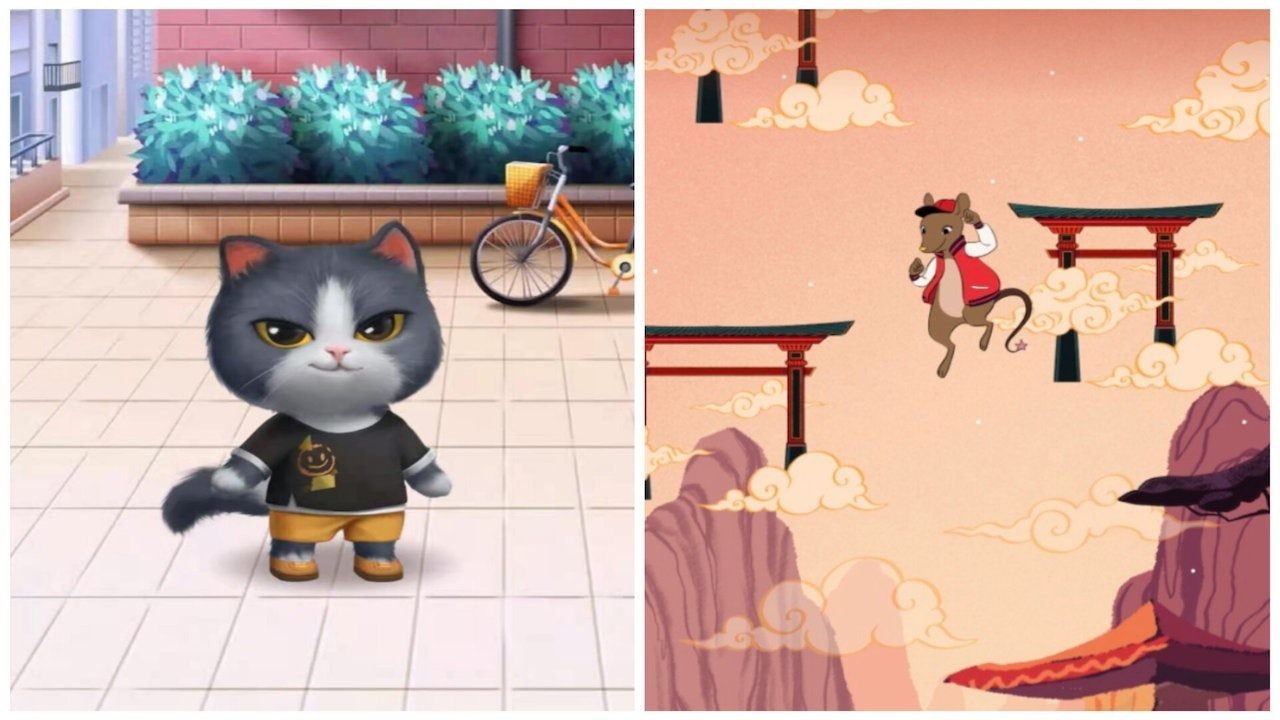This post originally appeared on Content Commerce Insider, our sister publication on branded entertainment.
What's been the magical trifecta of Covid-commerce?#
Online
Engaging
Social
None of these three things are binary — it's more like a spectrum of engagement, ranging from one-way content like short video to interactive content such as games. Games should be considered less as creative content and more as virtual spaces for branded content.
The games known as MOBAs (Multiplayer Online Battle Arenas), such as China's massively popular Honor of Kings, are pre-populated virtual spaces. Blurring the line between marketing and entertainment, these games excel at content-commerce, and they also happen to be one of the two things
Tencent#
is best at.
Case in point: Honor of Kings is Tencent's prime mobile gaming product, boasting more than 100 million daily active users. Honor of Kings works because playing is a brief and social experience. Gaming sessions are easy for friends to organize over
WeChat#
: after signing in via WeChat, a user’s friends are automatically pulled in, making it easy to find partners for quick 10-minute games that easily fit into busy schedules.
This year,
Burberry#
launched a WeChat game with a trench-coat wearing character called Ratberry (not making this up, it is the “Year of the Rat,” after all). The game was an expansion of a game that Burberry launched in October 2019, and is a prime example of entertainment-first luxury. Users were able to access the game through Burberry's mini program, via a Burberry article, or straight through Burberry’s official account. Since the game lived on WeChat, it was also very easy to share with friends.
Tencent Owns Social#
Social is an area that e-commerce giant
Alibaba#
has been agonizing over for a while. And it’s not for lack of trying. Alibaba rolled out Laiwang in 2013 to compete with WeChat on messaging, but the service never took off. And just last year, Alibaba launched Real in another bid to enter the social media space. It's too early to call it a failure, but historically, efforts to challenge Tencent on messaging applications have failed to take hold.
The point here is that messaging is everything — it's how most online users connect with each other. WeChat users (pretty much everyone in China with a mobile phone) spent a third of their online time on WeChat. Tencent knows that, and will do anything to stop its arch-nemesis Alibaba (and vice versa).
This is more than a high-school feud. Links to products on Alibaba's Taobao or Tmall can't be shared easily over WeChat — users have to copy a WeChat-specific link on the product page, send it over WeChat, and then the recipient has to copy this text and open the Taobao app manually. Taobao will automatically detect the text and suggest the product. Not so sleek, but brutally intentional on Tencent’s part.
The clear demarcation between the two ecosystems is also possible because of mobile — it’s no issue to share an
Amazon#
link over
Facebook#
because most of the buying still happens over browsers. For some reason, 58% of smartphone visitors use Amazon.com in the browser, as opposed to using the app. What’s more is that this kind of preferential treatment for Tencent’s own ecosystem will likely be illegal under the soon-to-come European system. That’s likely to extend to US firms, unlikely to Chinese ones who do little e-commerce in Europe or the US.
Bottom line: China’s snazzy e-commerce integration doesn’t count when crossing Tencent and Alibaba platforms.#
No embed found
Tencent supports its own WeChat stores, and the rival e-commerce platforms it has backed financially,
JD.com#
and
Pinduoduo#
. And WeChat is crucial for Pinduoduo. Group (or community) buying, Pinduoduo’s bread and butter, takes place predominantly over WeChat, with the support of the Pinduoduo mini program. Among all the WeChat e-commerce mini programs, Pinduoduo ranks first, and when Pinduoduo launched a new fashion platform this summer, it was as a WeChat mini program and not as a standalone app. The result is mobile, engaging and social — because it’s on WeChat.
Of course, there is no Taobao mini program on WeChat. The thought alone is heresy.
WeChat Mini Games and Mini Programs#
Branded games such as Burberry's are generally well-received by Chinese consumers, and that is also largely thanks to Tencent.
WeChat games are mini programs, or lightweight applications, that live within the WeChat ecosystem. They work entirely like apps, but require no downloading and have lightning-fast loading speeds. WeChat introduced the mini programs in 2017, and there are now 746 million monthly active users of mini programs, with some 81% of them also playing mini games.
To use a mini program, users register using a single tap through their WeChat accounts, thereby sharing personal information with the owner of the mini program. WeChat personal information is the Chinese equivalent of an email address, and invaluable for connecting brands to users.
Alibaba rolled out mini programs in 2018, and although they are accessible via Alipay and Taobao, they are nowhere nearly as popular as WeChat’s mini programs. Users mostly access these mini programs to pay vendors, and not to access content like with WeChat mini programs. The average Chinese user is unlikely to be aware that Alibaba uses mini programs for anything other than vendor payments or ordering food at a restaurant by scanning a QR code. Note, however, that anytime Alibaba mini programs are brought up, so is
Starbucks#
’s presence. Yes, Alibaba has a very strong partnership with Starbucks, and that’s been the highlight of Alibaba's mini programs (and pretty much the only one).
WeChat's support for gaming makes sense. Tencent has plenty of expertise through strategic investments and acquisitions involving firms behind some of the most popular titles, such as
Riot Games#
(League of Legends) and
Supercell#
(Clash of Clans). Meanwhile, Alibaba's efforts have lacked the social integration (via messaging and sharing), and gaming expertise that Tencent has so much of.
In terms of gamification, mini programs are where WeChat wins over Alibaba's Tmall or Taobao. Whereas Alibaba appears to prefer launching proprietary games such as Taobao Life or the virtual cat game that was popular during this year’s Singles’ Day, Tencent's mini programs allow brands to integrate their own games into their official WeChat official accounts and disseminate them through social sharing. Alibaba might own e-commerce, but Tencent owns gaming and, more importantly, social.
Resources:#
Burberry's Ratberry, Burberry released a series of short videos, showing the trench coat-wearing rodent enjoying adventures around the world — from London’s Chinatown to Turkey — while texting with Burberry brand ambassador and actress Zhou Dongyu.
It's interesting that while the Starbucks mini program is one of Alibaba's biggest, Starbucks still also signed a partnership with Tencent. Ouch.

